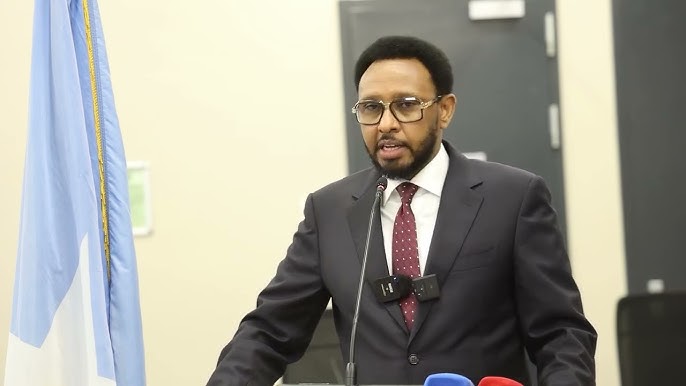Somalia warns of fiscal risks amid low domestic tax collection

Somalia’s Finance Minister Bihi Imaan Egeh warns that only three percent of the country’s economy is currently taxed, highlighting the need for federalized taxation
The Federal Government of Somalia has warned of a looming financial crisis unless a federalized taxation system is agreed upon, following new data showing that only three percent of the country’s economy is currently taxed.
Finance Minister Bihi Iman Egeh made the remarks during a panel discussion on strengthening fiscal stability held at the Justice Sector Conference. He emphasized that the current level of domestic tax collection is far below what is required to build and maintain government institutions.
The minister noted that the central government does not yet directly receive taxes collected by federal member states, with the exception of the capital, Mogadishu, where a formal taxation system is in place.
Minister Egeh highlighted that the Finance Ministry has prioritized increasing domestic revenue to reduce dependence on foreign aid. Over the past three years, he said, domestic revenue has increased by 80 percent due to new laws, a modernized tax collection system, and enhanced accountability mechanisms within revenue-collecting institutions.
“Only three percent of Somalia’s economy is taxed. Without an agreement on federalized taxation, the country faces significant financial risks,” the minister said, stressing the need for a unified system to manage public resources effectively.
Reflecting on past fiscal challenges, Minister Egeh noted that when President Hassan Sheikh Mohamud assumed office, the government relied almost entirely on revenue from the Mogadishu port, an unstable system that often delayed salary payments.
He added that the government has taken steps to establish a modern financial system, including appointing revenue auditors and implementing procedures to strengthen domestic revenue sources.
The Finance Minister concluded by urging citizens to understand the government’s fiscal situation and highlighted that financial stability is a cornerstone for building a strong and effective state.
